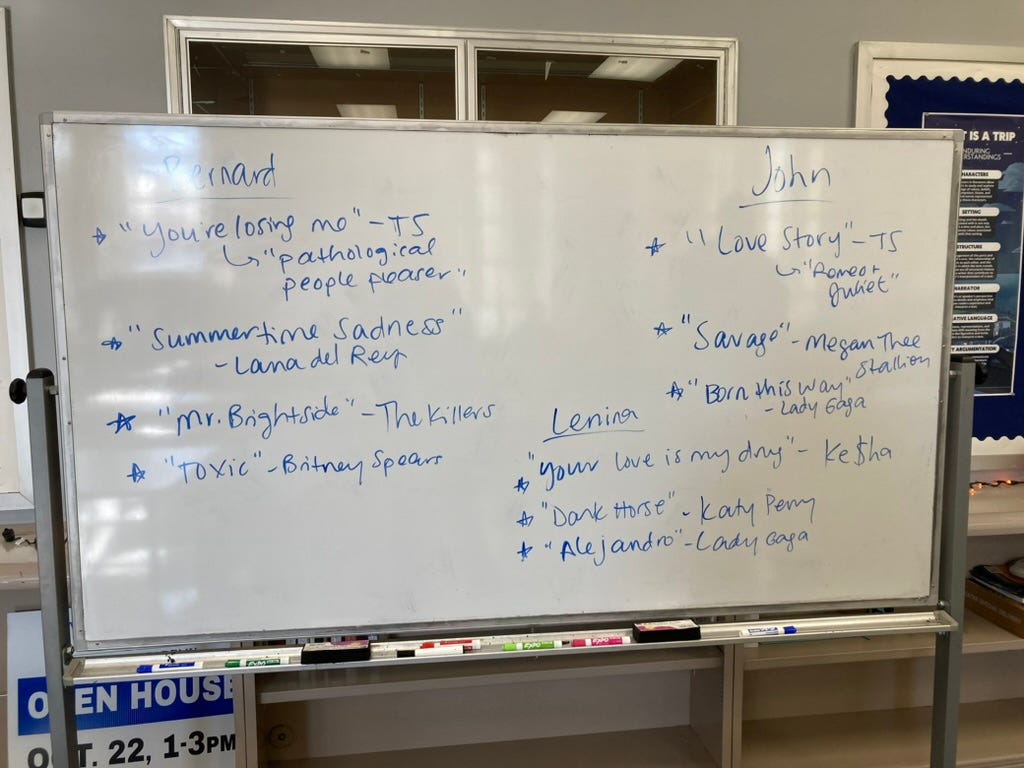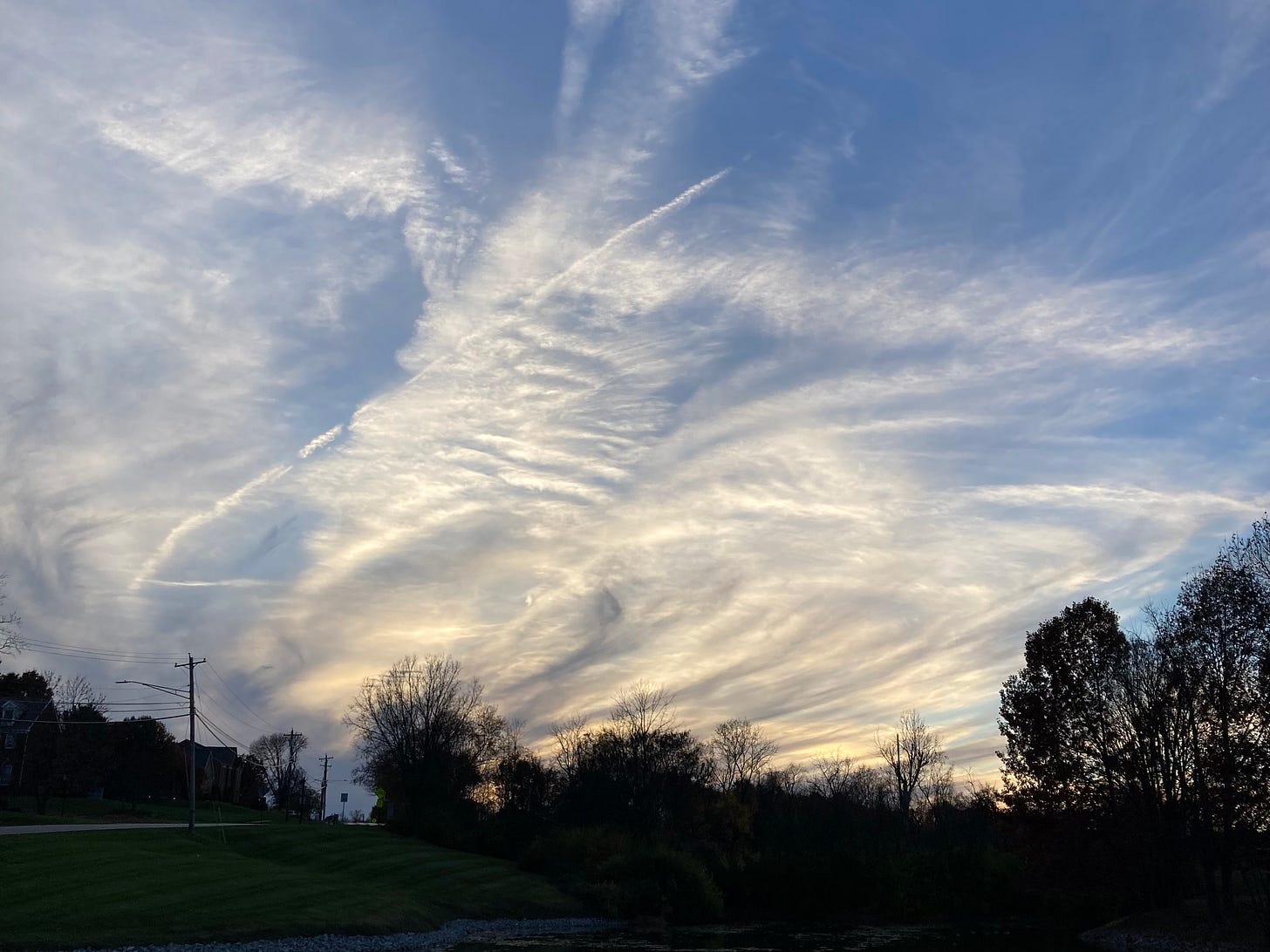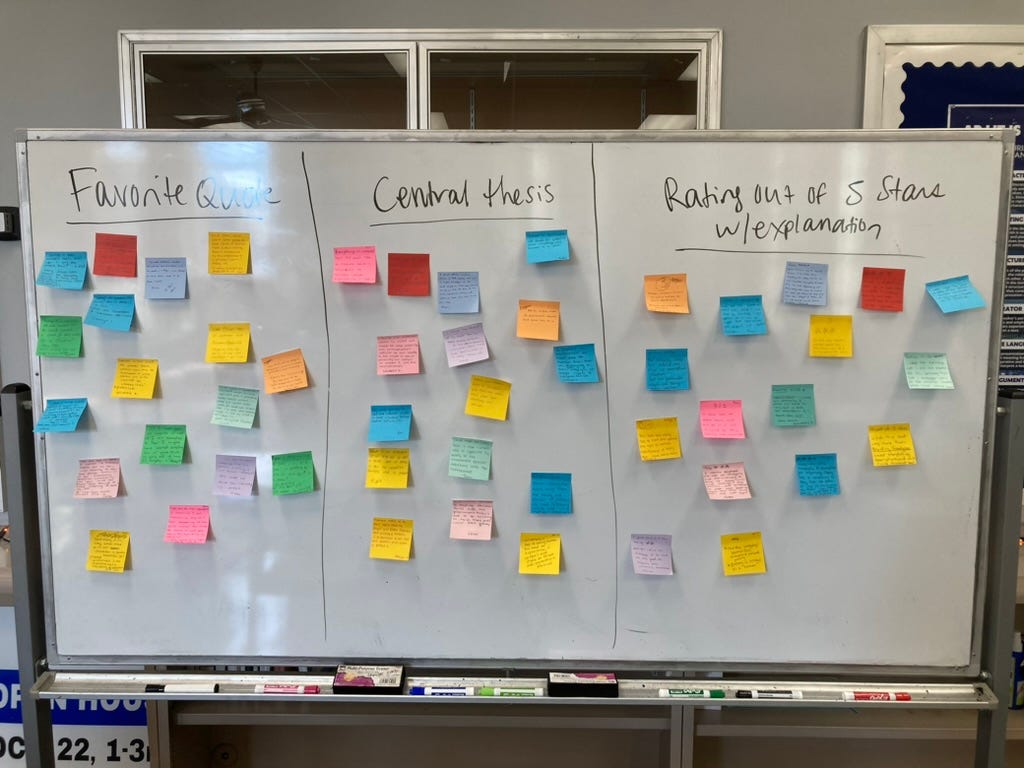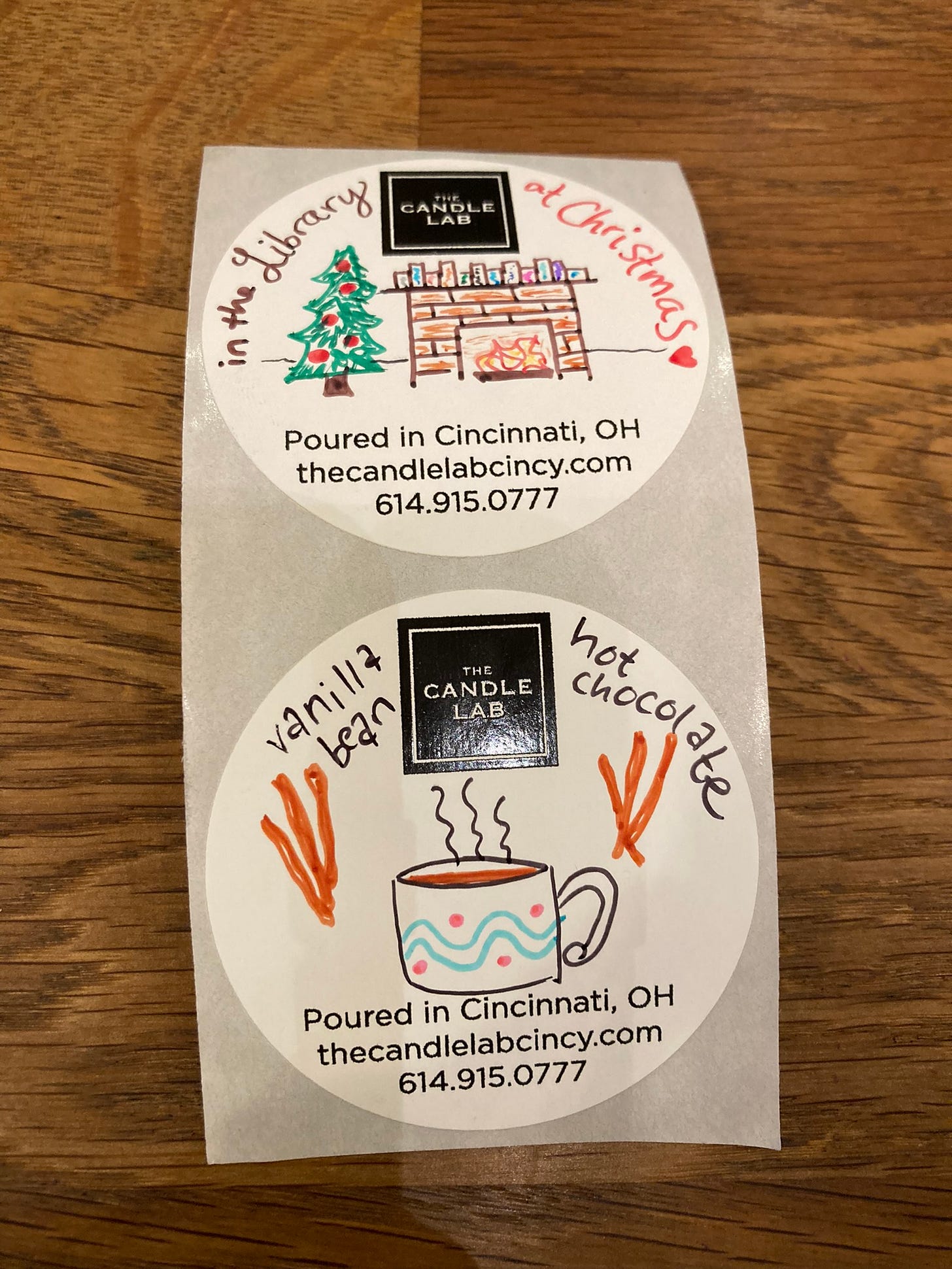It’s the last day of November and I’m down to the wire yet again on a newsletter. But hello, it’s not December yet, I still have some hours to procrastinate grading those week-and-a-half-old essays yet again; so let’s do this.
I haven’t been creating much recently and I feel like a robot: get up, read, do tasks, go to work, come home from work, do more tasks, try to do something fun but too tired for that so fall over and fall asleep, wake up at 11:00PM and berate myself for posting something stupid to my Instagram story or watching TV instead of doing something more worthy with my time. Blow out the candle that I forgot was burning. Give up and go to sleep for real. Wake up the next morning without sufficient rest and do it all over again.
I tend towards the existentialist, I think; I don’t really believe that there is any inherent meaning in life other than the meaning we decide to make. But recently I have still found myself disappointed in my robotic automatonning and wondering towards which purpose I am droning.
I casually fling about these robot words, but with respect to the books I’ve found myself reading recently, the concept might not be accurate to the mindless routine I’ve just described. Are robots mindless, or will they always be? Or are humans the ones who act all high and mighty but at the end of the day don’t think about or understand what they’re doing? Is it possible that one day in the not so distant future robots could be more human than humans? And if so, what does that say about us?
An acquaintance from my church recommended A Psalm for the Wild-Built by Becky Chambers earlier this year. She delivered it less like a suggestion and more like a prayer. I bought a copy at my favorite bookstore ages ago but, in classic me fashion, didn’t get around to it until this month. A lush, gentle world awaited and swallowed me whole: an imagined future where robots have gained sentience and left the human world en masse, with an agreement that they could return if they wanted to, but the humans would never make first contact. In the wake of the exodus, humanity rebuilds: communities become stronger, everything runs on renewable energy, buildings are made from natural materials, and orders of monks arise. One monk—queer, genderless Sibling Dex—decides to change their occupation and become a traveling tea monk. They provide tea, comfort, and conversation to the troubled. One day they travel further into the woods and meet a robot named Mosscap. Mosscap challenges everything Dex knows about life and causes them to question why humans are so hell-bent on pursuing a purpose, when existence itself is the only true source of wonder and meaning—and in this world it is robots, not humans, who realize this first.
Around the time I finished A Psalm for the Wild-Built, I borrowed the audiobook for In the Lives of Puppets by TJ Klune. This may have been because his other two books Under the Whispering Door and The House in the Cerulean Sea had also filled me with the same kind of cozy comfort that Wild-Built had, and I wanted more. I didn’t know that Puppets was about robots before I started listening to it. And if I’m being honest, I don’t like this book as much as TJ Klune’s other two and not nearly as much as A Psalm for the Wild-Built. But it has something that has stuck.
In some ways, In the Lives of Puppets is the opposite vision from Becky Chambers’s robot-and-human future; for the sake of not spoiling anything, let’s just say that Klune’s robots did not decide to leave, and the imagined future world is much less pleasant than Chambers’s. Nonetheless, some things feel familiar after Wild-Built: humans are not at the center of everything, gentle queer love flourishes, gender norms don’t exist, robots are deeper and more spirited than we might give them credit for, and unexpected connections can be made between human and non-human.
At the center of both stories is a question of purpose. Mosscap the robot sees Sibling Dex puzzling and suffering over their purpose in life and cannot understand. To Mosscap, everything is wonderful and imbued with meaning because there is no specific end in mind. It—for this is Mosscap’s pronoun—sees every approach as equally valid. Mosscap has a friend who has devoted its entire life to sitting in a cave and watching stalactites form. To Mosscap, this is just as meaningful as its own work of setting off to make connections with humans. Meanwhile, in In the Lives of Puppets, the human character Vic rejects the notion that he has to follow anyone else’s script for his role as a human in a world of robots. When a powerful character tries to strong-arm him into being a hero or a symbol of humanity, Vic chooses instead to embrace his free will and go down another path. Likewise, Vic’s android friend Hap actively rejects his creators’ intended purpose and forges a new uncertain future.
Robots are foils to humans. They’re our opposite, but they’re also a mirror. Contrast shows us the characteristics of both things more clearly, and nothing shows us who we are more clearly than robots—beings we create in our own image, and yet, who are distinctly not us. In A Psalm for the Wild-Built, robots are gentle and separate; they leave humanity and make their own way. Mosscap is unbothered by human constructs of meaning and purpose; as a result, it offers Dex peace, comfort, and a space in which to breathe. In In the Lives of Puppets, with a few notable exceptions, robots are not so gentle: although they try to separate themselves from humanity, what Klune’s robots largely reflect back at humans is our own mindlessness, ignorance, and hatred. Both versions are unmistakably us.

Alright then, fine—I haven’t been a robot recently. I’ve just been a human, dealing with little everyday human things. It’s dark at night and cold in the morning; my body says hibernate but capitalism says work. Of course I’m tired. I need to adjust. I’m not a machine.
I think of Mosscap and Dex in the woods, robot and human, one untethered by purpose and the other roiling needlessly in their own quest for meaning. Maybe the meaning is just to exist. Maybe this was obvious to our ancestors, and will be obvious to the robots of our future, but it is elusive and mind-bending to us in this over-stimulated, always-on, AI-saturated, productivity-obsessed world. Maybe we can just say no sometimes. Maybe the only purpose we need is to witness the season, embrace the darkness, run in the cold, put up the tree, read a good book or four, squeeze out a newsletter at the last minute. And eventually, of course, get to that grading.







I loooooove these books!!! We need more books that imagine the opposite of future dystopia - a world in which things are better, not worse!
One of my favorite books! I just reread it (and the sequel) in November! Love your thoughts here; I think a lot about Purpose too, and this is all helpful ❤️